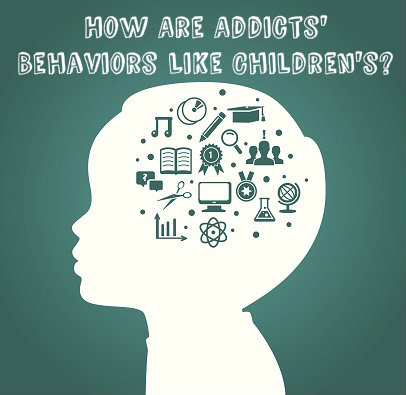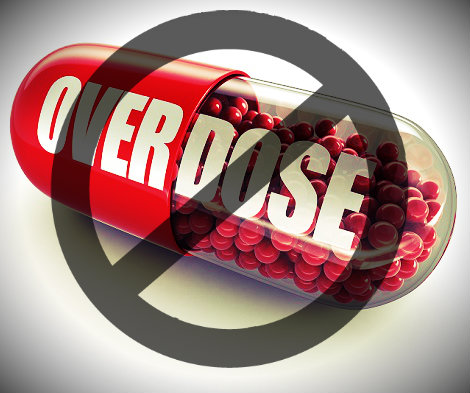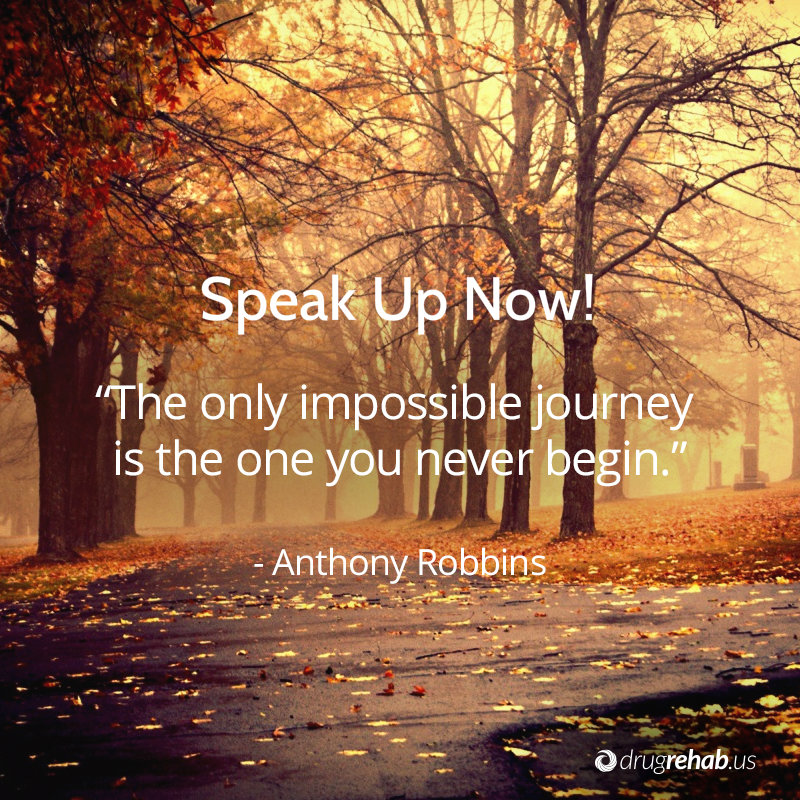30 Sep 2014
Does Drug Rehab Work?
Drug rehab success statistics are difficult to measure. One reason is that addiction is a chronic disease. With any chronic disease you can expect to relapse and to need some type of treatment over an entire lifetime. Addiction is not like an acute sickness that can be treated once and cured. If you struggle with a drug addiction, rehab will help you, but you have to recognize that it does not represent a cure for your illness. What rehab can do is guide you onto a path of lifelong sobriety that you will work on for the rest of your life.
Rehab Information And FAQs
Learn more about rehab information and rehab FAQs.
What Do They Do In Rehab?
 Rehab is short for rehabilitation and it refers to a program of treatment that will help you learn how to get sober and how to stay sober once you leave treatment. Rehab includes detoxifying the body and working through the inevitable withdrawal symptoms. Once you have completed detox you can expect to progress through a treatment plan devised by you and experienced addiction and health professionals.
Rehab is short for rehabilitation and it refers to a program of treatment that will help you learn how to get sober and how to stay sober once you leave treatment. Rehab includes detoxifying the body and working through the inevitable withdrawal symptoms. Once you have completed detox you can expect to progress through a treatment plan devised by you and experienced addiction and health professionals.
Treatment in rehab includes individual therapy, family therapy, support groups and group therapy as well as supplemental activities such as art therapy, exercise, meditation and other holistic practices. You may also be treated with medication while in rehab. You can also expect to learn about living your new sober life outside of rehab and coping mechanisms to help you resist urges to relapse.
What Makes Rehab Successful?
Although it’s hard to say that rehab works for everyone, it does help most addicts get clean. The most successful drug rehab programs are those that create individualized treatment plans. Everyone is different and one plan will not work for everyone. Rehab also works when there are experienced, trained and committed professionals working to help you. Finally, successful drug rehab includes a commitment and hard work from you, the client. When you put in the time and the effort to get well again, you can expect that rehab will work for you.
Life After Rehab
Because addiction is a chronic disease, you have to remember that rehab is not the end of your treatment. People who think that rehab doesn’t work are often misinformed and expect to be cured by the end of their stay. A good rehab program will teach you how to be successful after you leave rehab. This often means continuing with some type of therapy and possibly attending support group meetings and working with a sponsor.
As with any chronic illness, like diabetes or high blood pressure, your addiction may relapse after rehab. That doesn’t mean that rehab didn’t work. It simply means that you need continuing care and treatment. Don’t consider a relapse a defeat. It’s just a wake-up call letting you know that you need to get back to therapy or some other type of treatment. Keep working hard toward sobriety and you will be able to live with and manage your disease.
Get The Know How On Additional, Important Drug Rehab FAQs
29 Sep 2014
How To Use Activities To Help Overcome Addiction
It may sound too simple, and nothing can replace a good addiction treatment program, but engaging in new activities and hobbies can be a powerful way to help overcome addiction. To truly get sober and into successful recovery from your addiction, you need high-quality care from experienced professionals, support from friends and loved ones, and hard work on your part. But there are also tools and resources to help support your recovery and these can make all the difference. Consider getting involved in a new activity to aid your sobriety.
Avoiding Relapse
Recovering from addiction means facing a long-term battle with urges to use again. No matter how far you get in your sobriety, there will always be a little voice telling you to turn back to substances. It may not be there every day, but it will be there at your low points and when you feel your worst. There are many professional and useful suggestions for how to resist these urges: know your triggers and avoid them, cut ties with old friends, lean on sober friends, keep up with therapy and stay healthy. These are great ideas, but add one more: get involved with new activities.
Hobbies For Recovery
 Hobby is a quaint and old-fashioned word, but it refers to doing something, anything, that is meaningful to you. It could be something you used to do, but lost sight of during your substance abuse period. Or it could be something entirely new, something you always wanted to try, but never got around to doing.
Hobby is a quaint and old-fashioned word, but it refers to doing something, anything, that is meaningful to you. It could be something you used to do, but lost sight of during your substance abuse period. Or it could be something entirely new, something you always wanted to try, but never got around to doing.
As an addict you turned to drugs or alcohol as a source of meaning in your life. Maybe it filled a void you always felt you had. Maybe it helped you to suppress trauma that has been chasing you since childhood. Maybe you were lonely and being high or drunk helped you forget that fact. Meaningful activities can play the same role, but in a healthy and beneficial way. They bring meaning to your life and help you connect with others. When you have something to which you devote your time and energy, you leave less room for the drugs and alcohol of your past.
Getting Involved
To get involved in a new activity means you need to figure out what you want to do. Reflect before you get started and think about the kinds of things that have always interested you. Is it music? Art? Working with animals? Helping others? Tap into what moves you and then start trying things. You may need to try a few new hobbies or activities before you find the one, but there’s nothing wrong with that. You might even make some new friends along the way. Look to your community’s ongoing education programs, a local community college, your church or volunteer organizations to find the activities you want to try and then dive in.
Beware Of Substitute Addictions
As you begin your new adventure in sobriety, be aware of the possibility of a substitute addiction. As an addict you have a natural tendency to go overboard and become obsessive. Watch yourself for signs that you are getting addicted to your new activity. Be aware of how much time you spend on it and if you are neglecting other responsibilities. Your new hobbies should help you, not become a substitute for drugs and alcohol.
As long as you have the support and professional care you need for your addiction, adding a hobby or new activity can only help you. The meaning and fulfillment you find could be just what you need to help you down the path to long-term sobriety.
Much of the current drug news from around the country focuses on heroin and narcotic painkillers. Methamphetamine is sometimes thought of as yesterday’s news, but in many areas it is still a raging problem. In 2013, news outlets reported that Tennessee had become the leading state in the U.S. for meth use. Now a new law has gone into effect that legislators and law enforcement officials hope will crack down on the epidemic in Tennessee that is costing taxpayers $1 billion a year.
The Meth Problem
It was more than a decade ago that meth labs started springing up around the country, but particularly in rural areas. Methamphetamine is a controlled substance that can be prescribed by a doctor, but rarely is. The side effects and the potential for abuse are so great that it is a last-resort medication for some medical conditions, including ADHD and obesity.
Effects Of Meth
Meth is susceptible to abuse because it is a stimulant and gives the user energy as well as a euphoric feeling. On the downside, meth can cause:
 high blood pressure
high blood pressure- an elevated body temperature
- dry mouth
- jaw-clenching
- memory loss
- aggression
- paranoia
- anxiety
- insomnia
- brain damage
- organ damage
- severe dental problems
- violent behavior
It is also highly addictive and with prolonged and continued use, the negative side effects increase.
Meth has become such a huge problem because it is relatively easy to make. With just a few ingredients, including an over-the-counter cough medicine ingredient, anyone can make it in a home lab. These labs are abundant in Tennessee and the drug has been having disastrous effects on individuals and families in the state.
How Tennessee’s New Law Is Limiting The Purchase Of Pseudoephedrine
While other states have enacted and enforced strict laws regarding the purchase of cough medicine that have helped cut down on meth manufacturing and use, Tennessee has fallen behind. A bill passed in April can now change the course of Tennessee’s meth trajectory. The new law restricts the purchase of medicines containing pseudoephedrine, the cough medicine ingredient for making meth, to 48 tablets per month and 240 per year. The cap previously sat at 75 tablets per month. Some lawmakers wanted to slash that maximum even further, but a compromise was set at 48.
It may seem like a no-brainer to restrict pseudoephedrine, but there are plenty of law-abiding Tennesseans who depend on the medication for allergy relief. Some opponents of the bill argued that it was unfair to restrict access to the medication and stated that most of the meth used in Tennessee comes from other states. Still, the majority of lawmakers agreed that slashing the maximum allowance would curb meth use in the state.
As part of the restriction on buying pseudoephedrine, consumers’ purchases of the medication will be tracked. Those with a real medical need for more pseudoephedrine will be able to go over the limit with a doctor’s prescription. The need for more restrictions on meth-making ingredients is great and many feel that this new law meets that need. Others are skeptical, but only time will tell if Tennesseans are really ready to kick the meth habit.
Read Other News In Addiction And Addiction Rehab
25 Sep 2014
How Is Substance Abuse Childish Behavior?
It might seem like an odd way to think about substance abuse and addiction, but the behaviors are childish and immature. No one can claim ignorance of the negative consequences of drug or alcohol abuse, yet people do it anyway. Being impulsive and lacking self-discipline are traits that are common in children and which we are expected to outgrow. So why do drug abusers act like children and how can they learn to grow up?
Impulsivity, Self-Control And Drug Abuse
 Controlling impulses is something we all have to learn as human beings. We are not born with self-discipline. As young children we reach for what we want. As we grow older we learn to control our impulses. Those who fail to learn the skill, for whatever reason, are not as successful. For instance, a study found that teenagers that exhibited strong self-control were more likely to be positive, achieve goals and be self-motivated and successful in academics than their impulsive peers.
Controlling impulses is something we all have to learn as human beings. We are not born with self-discipline. As young children we reach for what we want. As we grow older we learn to control our impulses. Those who fail to learn the skill, for whatever reason, are not as successful. For instance, a study found that teenagers that exhibited strong self-control were more likely to be positive, achieve goals and be self-motivated and successful in academics than their impulsive peers.
Research has also found that being impulsive and lacking self-control are traits that may be inherent in some people. We also know that having these traits makes some people more susceptible to drug abuse and addiction. If you can’t control your impulses, and if you lack the self-control to turn down a pleasurable drug because of negative consequences, you are more likely to be an addict.
Growing Up And Learning Self-Control
Just because addicts act more childishly and are more impulsive than non-addicted adults, does not mean they cannot learn to control themselves and be more emotionally mature. One powerful, yet simple, tool is distraction. People who have good self-control are good at distracting themselves. If something pleasurable is set before you, but you know you should resist, distract yourself. Think about other things or engage in an alternative activity—whatever you do, make the distraction positive. You will be more likely to control your impulse if you can distract yourself with something that is pleasurable and good for you.
Another good tool that emotionally mature adults use is stress-management. If you are stressed out, you put yourself in a negative cycle of bad behaviors and poor health. When stressed, you are more likely to be impulsive. Meditation, exercise, adequate sleep, good nutrition and mindfulness all help to manage stress and help you to make better choices, not ones based on impulses. The better you feel, the better able you will be to make good choices.
People with good self-control are good planners. Thinking about the future and planning for situations in which your self-control may be tested can help you to resist your impulses. For instance, if you are trying to cut back on drinking, consider all the possible situations you may face. If you’re going to a party, make a plan for how many drinks you will have and how you will resist the impulse to have more. Plan out how you will handle people who urge you to keep drinking. Making these plans can help lead you to successfully control your impulses.
Finally, maintain a positive attitude. Some people believe that willpower is a finite resource, but this isn’t true. You may be faced with a number of temptations, but you can learn through practice and experiences to control your impulses. You are not a child anymore, and although you still act like one at times, you do have the power within you to grow up and act like a mature adult with self-control.
24 Sep 2014
How To Come Out As A Recovering Alcoholic
Being an alcoholic means living with a lifelong disease. If you have gone through rehab or any other form of treatment and are now in recovery you have taken huge steps to get back control of your life and to treat your disease. Remember that addiction is chronic and that you need to treat it for the rest of your life. This means that it will always be a health concern for you. No matter how long you have been sober, a relapse is always possible.
With something so big going on in your life, it doesn’t make sense to keep it a secret from your friends and family members. So how do you come out and tell people? It will be scary at first, but know that your loved ones will support you.
Steps To Come Out And Tell People You’re A Recovering Alcoholic
Start slowly and take this advice:
 Start With A Support Group – The people who will be most sympathetic to your alcoholism are those who also struggle with the disease of addiction. Joining a support group is a great tool for maintaining your sobriety and a useful way to practice talking about your addiction and recovery. The members of your support group will be supportive. No one there will reject you or ridicule you. Tell your story here and you will start to feel more comfortable opening up to others.
Start With A Support Group – The people who will be most sympathetic to your alcoholism are those who also struggle with the disease of addiction. Joining a support group is a great tool for maintaining your sobriety and a useful way to practice talking about your addiction and recovery. The members of your support group will be supportive. No one there will reject you or ridicule you. Tell your story here and you will start to feel more comfortable opening up to others.
- Tell Your Sober Loved Ones Next – The sad fact is that the friends with whom you used to drink may not support your new sobriety. They may take your admission of alcoholism as an accusation that they too have a problem. This comes from a defensive standpoint and denial on their parts, but for you it can feel hurtful and devastating. You can confront these friends eventually, but start with your sober loved ones. They are more likely to be loving and supportive of the changes you’ve made in your life.
- Arm Yourself With Information – When you talk to your loved ones about being in recovery, be prepared to educate them about the disease of alcoholism. Most people still have no idea what addiction really is, that it is an illness. Talk to them about your personal experiences and why you felt you had to stop drinking, but also about alcoholism in general. Help them to understand the disease and they will be better able to support you.
- Tell Your Friends And Family What You Need – It is also important that you provide your loved ones with details about what you need from them. It may be confusing for them. If you need them not to drink around you, make that clear. If you can’t meet up in a bar, make sure they know that. They will want to help, but will need to know how.
- Be Patient And Give Your Loved Ones Space – In spite of your best efforts, some of your loved ones may not take the news well. Be prepared to give them space if needed. The bad reaction will probably be due to shock. Provide them with resources about alcoholism and give them time and space. They will come back to you when they’re ready.
Telling people that you are an alcoholic in recovery is never easy. It is important, though, because your disease is a part of who you are. When you take the time to educate the ones you love and tell them what you need for support, you may be surprised at just how much support you receive.
If You Need Help With Your Addiction Recovery – Call Us Now – We Are Here Just For You!
23 Sep 2014
How To Cope When Your Child Is An Addict
Having an addict in the family is never easy. When that addict is your child, whether a teen, young adult or fully-grown adult, the impact on you as the parent is devastating. First you feel immense guilt and pain because your child is suffering. You may also face a lack of support from your loved ones. Finally, your mental, emotional and physical health may begin to deteriorate. How do you cope with these issues after you have tried to get help for your child?
Living With Pain And Guilt When Your Child Is Addicted
 It is only natural to experience a sense of extreme guilt and feeling as if you have failed your child in some way. Seeing your child suffer can also cause you a tremendous amount of anguish and emotional pain. If you have done your utmost to help your child get into recovery, if you have expended your resources, you have done what you can. Remember that your child is capable of making decisions and his poor choices are not your fault. It is normal to still feel guilt and pain, but there are ways to cope.
It is only natural to experience a sense of extreme guilt and feeling as if you have failed your child in some way. Seeing your child suffer can also cause you a tremendous amount of anguish and emotional pain. If you have done your utmost to help your child get into recovery, if you have expended your resources, you have done what you can. Remember that your child is capable of making decisions and his poor choices are not your fault. It is normal to still feel guilt and pain, but there are ways to cope.
Realize that extreme feelings of guilt and pain are signs of a negative attachment to your child. Recognize this attachment and how it is harming you. Accept that your child makes his own choices and that you cannot force him to stop using drugs or alcohol. Focus your energy on yourself and on the positive relationships in your life. If your spousal relationship has been damaged because of your child’s addiction, work on it. Redirecting your focus will help you detach from negative and unhelpful emotions.
Getting Support For Family Addiction
A major issue that parents of addicts face is a lack of support. If your child had another kind of medical disease, like cancer, you could expect to receive all kinds of support from family and friends. Parents of addicts, however, often find their loved ones have turned away, thanks to the lingering stigma attached to the disease of addiction. Support is essential to coping, so find it where you can. Look for other parents who know what you’re going through. Support groups for loved ones of addicts can be a great resource. You might also work on those closest to you. Talk to your more supportive loved ones and explain that you need help and love.
Taking Care Of Yourself When Your Going Through The Pain Of Your Child Being An Addict
You can only help others if you are properly cared for and are well. Trying to help your child and suffering from the guilt and other negative emotions his issues have created, your own self-interests have probably fallen to the bottom of your list of things to do. You must find the time to take care of yourself if you hope to be happy again, to be able to help your child when he is finally ready for it or to re-establish a healthy relationship with your spouse. It may seem selfish, but find time to do something you enjoy, something just for you. Make the time to prepare healthy foods for yourself and include exercise or meditation in your day. These small gestures will make you better able to cope with your addicted child.
Having a child who is seriously ill is one of every parent’s worst nightmares. With the disease of addiction the feelings of helplessness and guilt can be especially powerful. If you can dissociate yourself from those negative feelings, find support and take care of your own health, you can cope with this. You will even be able to help your child when he decides it’s time to get clean.
Read More: What Can You Do When You Feel Helpless With Your Child’s Addiction? And Help Your Child Overcome Their Addiction!
If You Need Help With Your Child’s Addiction – Call Us Now – We Are Here For YOU
Overdose deaths caused by heroin and other opioid drugs are on the rise across the U.S. Opioids include illegal heroin, but also many powerful and addictive prescription painkillers. All of these drugs are easy to abuse, get addicted to and overdose and die from using. An injection with a drug called Naloxone can reverse such an overdose and prevent a tragic death. If you have someone in your life addicted to or abusing opioids, you need to know about this life-saving overdose antidote.
When Naloxone Can Be Used
 Naloxone is a drug that is related to opioids and that is capable of reversing the effects of certain opioids on the body. It can be used after surgery to reverse the effects of opioids given for pain and sedation. It can be given to infants born with a dependency on opioids. A mother’s drug use causes this and the Naloxone helps to relieve the infant’s withdrawal symptoms. For someone overdosing on an opioid, Naloxone can be injected with a needle or with an auto-injector, called Evzio. The auto-injector is similar to devices used for severe allergic reactions and can be used by anyone without medical training.
Naloxone is a drug that is related to opioids and that is capable of reversing the effects of certain opioids on the body. It can be used after surgery to reverse the effects of opioids given for pain and sedation. It can be given to infants born with a dependency on opioids. A mother’s drug use causes this and the Naloxone helps to relieve the infant’s withdrawal symptoms. For someone overdosing on an opioid, Naloxone can be injected with a needle or with an auto-injector, called Evzio. The auto-injector is similar to devices used for severe allergic reactions and can be used by anyone without medical training.
Naloxone Saves Lives
Naloxone has been successful in saving lives. The Centers for Disease Control and Prevention (CDC) reports that thousands of doses of Naloxone have been distributed in community groups dedicated to preventing overdose deaths. Because of this distribution, more than 10,000 people have been saved from life-threatening overdoses. Community groups, first responders and law enforcement officers are being given injectors in greater numbers to administer life-saving Naloxone.
Can Anyone Get Naloxone?
The important question for anyone who cares about an opioid drug abuser is about access to the overdose antidote. Emergency responders and police have them, and injection devices are easy to use. Can anyone get access to a Naloxone injector? Should you carry one with you to save your loved one’s life in the event of an unintentional overdose? Many advocates for greater access to the overdose antidote say yes.
Community programs are already working toward getting more Naloxone injectors into the hands of those who need it. It is a prescription medication, but it can be prescribed to anyone who is at risk of having an overdose. The reach of such community programs, however, is currently limited. These programs are run mostly through needle exchange programs and target inner-city heroin addicts. More access is needed in greater areas and for people abusing prescription painkillers, not just heroin. Support for expanding access is high, but funds are low.
To get a Naloxone injector for yourself or a loved one, you need to either find a community program near you that will distribute it to those in need, or find a physician willing to write you a prescription for one. If you don’t know where to start, speak to your primary care doctor for more information or referrals. Also keep an eye out for non-prescription Naloxone. Because of the great need for this life-saving drug, the Food and Drug Administration (FDA) is considering the development of an over-the-counter alternative.
Opioid addiction is a terrible disease. It can hook anyone and it can do so quickly. Getting over an addiction to an opioid is extremely challenging. Anyone abusing these drugs is at risk for an overdose. Dying from an overdose can even occur with the first use of one of these drugs. If you know someone who abuses any kind of opioid, the overdose antidote should be on your radar. Look into the possibility of getting access to the injector. It could save the life of someone you love.
19 Sep 2014
Speaking Up About Addiction
Addiction is often a silent disease. While no one is ashamed to talk about having arthritis or high blood pressure, the disease of addiction has long carried a terrible stigma. Those struggling with addiction are too often looked upon, by others as well as themselves, as weak, morally inferior and lacking in willpower. It is difficult to speak up and speak out about the challenges of this disease, but when we do, we can make real, positive changes. Only with awareness and recognition will more addicts get the help they need, while future addictions are prevented.
The Power Of Awareness
 The expression goes that knowledge is power and it carries a great amount of truth. When something like addiction remains shadowed and hidden, ignorance is allowed to grow. When someone knows nothing about addiction, the lies and misinformation seep in along with assumptions and prejudices. Someone who is ignorant about addiction may not be aware that a friend, coworker, or even a family member is struggling with the disease.
The expression goes that knowledge is power and it carries a great amount of truth. When something like addiction remains shadowed and hidden, ignorance is allowed to grow. When someone knows nothing about addiction, the lies and misinformation seep in along with assumptions and prejudices. Someone who is ignorant about addiction may not be aware that a friend, coworker, or even a family member is struggling with the disease.
Raising awareness about addiction can be powerful. Spreading the word about how damaging this disease can be is a great way to prevent people from abusing substances in the first place. Prevention is the best way to help spare people from the pain and suffering caused by addiction. Raising awareness can even help motivate other people to help make a difference. Even for those who never had an interest in drug use or drinking, learning more about addiction can inspire anyone to get involved with helping others.
Awareness can also make big changes over the long term. It might feel as if one person, or one small group, speaking up and talking about addiction makes little difference. The truth is that it can have a snowball effect. Your efforts to reach others inspire the next person, and the next person. When enough people start speaking up, lawmakers start to listen, as do organizations with the means to fund research and treatment. The act of speaking up, even by one person, can be powerful.
Sharing Stories Of Addiction
If you have been impacted by addiction, whether your own or someone else’s, sharing that story is one important way to speak out and raise awareness. The more we speak about addiction and the more we hear about it, the more it loses its mystery and stigma.
Several organizations encourage and host events that allow you to get your story out there:
- The National Council on Alcoholism and Drug Dependence has named September National Alcohol and Drug Addiction Recovery Month. This event encourages people to learn about addiction and recovery as well as treatment options.
- The Substance Abuse and Mental Health Services Administration supports October as National Substance Abuse Prevention Month and provides ideas and events for people to share their stories and to learn more about addiction.
- The U.S. Army supports veterans battling drug addiction by encouraging everyone to learn more about addiction, treatment and recovery. It also advocates for celebrating the successes of those who are in recovery and sober.
When it comes to a disease laden with stigma, the only way to banish the shame and ignorance is to speak up. If you have battled addiction, if you have seen a loved one laid low by this disease, or if you simply care about the issue, speak up, spread awareness and help others learn more about the disease of addiction!
Read Our Other Empowering And Inspirational Posts
Overcoming Addiction Is Worth It & So Are You! – Let Us Help You Take That First Step – Call Us Now!


